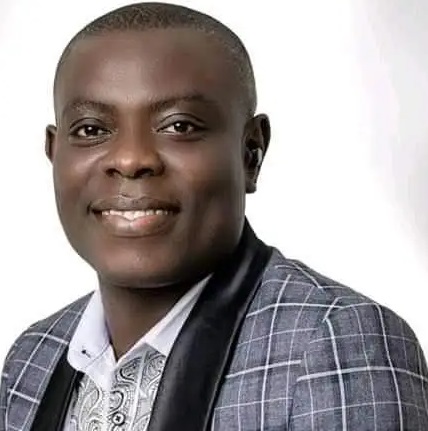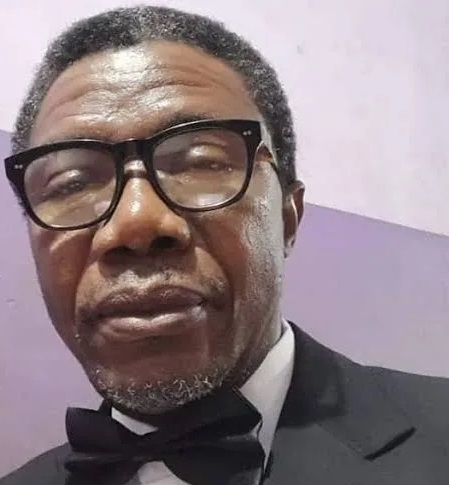By Zoe Solomon Tamunotonye
1. The Judiciary and the Perpetuation of Political Crisis in Rivers State
Since October 30th, 2023, Rivers State has been embroiled in a political crisis, sparked by an attempted impeachment of Governor Siminalayi Fubara. This impeachment attempt, widely regarded as illegal, was orchestrated by 27 members of the Rivers State House of Assembly, led by the former Speaker, Rt. Hon. Martins Amaewhule. The situation escalated into a series of contentious events, including the bombing of the Rivers State House of Assembly and the defection of the 27 members involved in the coup attempt. These events have created constitutional crises that urgently require legal interpretation and resolution by the Judiciary.
2. The Impeachment Attempt and Subsequent Events
The crisis began with an unconstitutional attempt by a faction of the Rivers State House of Assembly members loyal to the former Governor, Chief Barr. Nyeson Wike to impeach Governor Fubara. The Nigerian Constitution clearly outlines a rigorous and transparent impeachment process to ensure fairness and justice. However, the actions of the 27 Assembly members were conducted outside these constitutional provisions, raising serious concerns about the legality and legitimacy of their actions.
The political crisis worsened when the Rivers State House of Assembly was bombed, a violent escalation that underscored the gravity of the situation. This was followed by the defection of the 27 members from their original political party, the Peoples Democratic Party (PDP), to the ruling All Progressives Congress (APC). Section 109 of the Nigerian Constitution is clear and, in some cases, self-executory: members who defect from the political party that brought them to the House lose their status, their seats should be declared vacant and the Independent National Electoral Commission (INEC) should be call upon to conduct another election to fill in the vacant seats. Yet, despite this constitutional mandate, no decisive action has been taken to address this clear violation of the law.
3. Judiciary’s Role: an Abandonment of Responsibility and Attempt to Cause Anarchy
Instead of upholding the rule of law and providing clarity on these issues, the judiciary in relation to the Rivers State political crisis has been accused of manipulating and misinterpreting the laws to favour a particular faction. Rather than serving as an impartial arbiter and stabilizing force during this period of political uncertainty, the judiciary’s actions have only added to the chaos and confusion.
The courts and judges, who are supposed to be impartial interpreters of the law, have been accused of betraying the trust and confidence of the people. Instead of interpreting the laws to bring about discipline, end the political rascality and promote governance and peace in Rivers State, the judiciary appears to be perpetuating the crisis by siding with those wielding federal power against the will of the Rivers people. This perceived partiality directly contradicts the principle that the judiciary should be the last hope of the common man and a protector of democracy.
4. Manipulation of Justice: A Grave Misstep
The actions of the judiciary in the ongoing crisis in Rivers State are not only shameful and embarrassing but also detrimental to the democratic fabric of Nigeria. By failing to uphold the Constitution and interpret the law impartially, the judiciary is effectively perpetuating and sustaining the crisis in Rivers State and, in doing so, fanning the flames of anarchy.
A careful judicial review reveals that all the recent judgments of the Federal High Courts, Appeal Courts, and the Supreme Court have direct bearings on the Rivers State political crisis. For example, the Supreme Court, out of all the cases pending before it for many years, hurriedly delivered a judgment on the local government autonomy matter. As if that was not enough, the Supreme Court even reversed itself in a landmark judgment between the Attorney General of Lagos State and the Attorney General of the Federation (AG. Lagos vs AG Federation, 2004, Supreme Court of Nigeria). Instead of issuing judgments that address the abuse of power as enshrined in section 162 (5-8) of the constitution, by state governors with reference to local government funds, the court issued a ruling that seems to favour the faction opposed to the governor in the Rivers State local government crisis.
Furthermore, the State High Courts and Federal High Courts are supposed to have coordinate jurisdictions, with conflicts arising from judgments appealed to the Federal Appeal Courts. This ensures a true federal character principle, sharing judicial powers between the state and federal governments. However, recent judgments from the Appeal Court particularly as it concerns the Rivers State House of Assembly case have denied State High Court jurisdiction, with Federal High Courts usurping the powers of the State High Courts. It appears there is a deliberate attempt not only to undermine the powers of the states as federating units but also to shift from a federal to a unitary system of government. There are even rumors that a powerful individual from Rivers State has used his influence as a federal official to sway expected judgments in favour of the 27 members.
5. Erosion of Public Confidence in the Judiciary
It is a fundamental principle in any democracy that the rule of law must prevail over the whims of any individual or group. When the judiciary, the guardian of the Constitution, appears to act in a biased manner or is perceived to be under the influence of external forces, it erodes public confidence in the entire democratic process. In Rivers State, this erosion of trust is becoming increasingly evident as the judiciary continues to issue judgments that are not only conflicting but seem to align more with the interests of someone with federal powers than with the constitutional rights of the people.
6. A Call for Judicial Integrity
The immediate past Chief Justice’s close association with the Federal Capital Territory (FCT) Minister, who leads the faction against Governor Fubara, further complicates the judiciary’s role in this crisis. This association raises questions about the impartiality of the judiciary and whether it can truly serve as an unbiased arbiter in the ongoing political conflict. The judiciary must be above reproach, and any actions that cast doubt on its impartiality can have devastating effects on the rule of law and democratic governance. In a democracy where the will of one man can override the Constitution and the collective will of the majority, there is a clear and present danger of slipping back into a state of nature, as described by Thomas Hobbes, where life is solitary, poor, nasty, brutish, and short. Such a scenario is not only undesirable but also avoidable if the judiciary acts promptly and judiciously.
The judiciary in relation to the Rivers State political crisis must rise to the occasion and fulfill its constitutional mandate to interpret the laws impartially and without fear or favour. The ongoing crisis requires a firm and clear judicial response that upholds the rule of law and protects democratic principles. For instance, It is common judicial knowledge that the 27 members have defected by their initial actions and, as the principle of equity dictates, their actions are considered done even if not formally completed in the eyes of the law. What the courts and judges need to do, is to take judicial notice of their actions in their house sittings and in the public. Consequently, their seats remain vacant, as stipulated in Section 109 of the Constitution.
The courts and judges must summon the courage to put an end to this charade and uphold the tenets of our democracy. The judiciary must act now to restore public confidence and ensure that governance and peace return to Rivers State.
The time for equivocation is over. It is now incumbent upon the judiciary to demonstrate its commitment to justice and the rule of law. Failure to do so could have far-reaching consequences for democracy in Nigeria particularly in Rivers State. The judiciary must act decisively to prevent further erosion of democratic norms and restore stability to Rivers State. This includes delivering a fair and just judgement according to the constitution in the 27 member’s case before our lordships. Let equity, natural justice, good conscience and morality prevail in your judgement.
A stitch in time saves nine!
As it pleases my Lordships!
Zoe Solomon Tamunotonye
Lecturer, Development Activist
National President, Rivers Emancipation Movement, REM
In this article:


